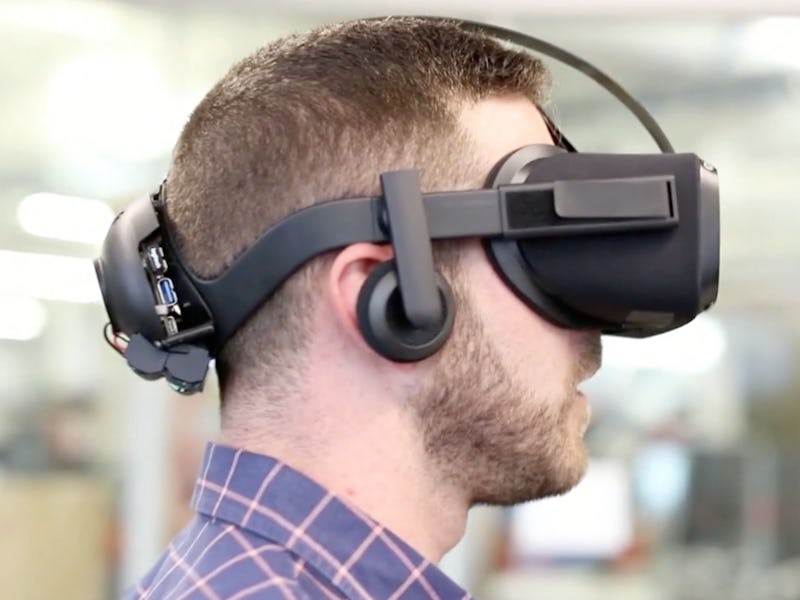
If you even blinked during Thursday’s Oculus Connect 3 keynote, you might have missed one of the most important pieces of news to come out of it: Facebook offered us a glimpse of a stand-alone Oculus prototype that’s going to be a lot cheaper and a lot more user-friendly than Oculus Rift. No cords or external computers required.
“We want hardware that is both smaller and a lighter form factor that can do both VR and AR,” said Facebook CEO Mark Zuckerberg.
Right now virtual reality is limited to either mobile or desktop-powered tech. Mobile, while cheaper, has a lower processing power. PC-based VR is higher-power, but more expensive and requires users stay plugged to a computer.
Zuckerberg thinks that the “sweet spot” between the two current models is a high quality, stand-alone virtual reality product. The stand-alone Oculus will have inside-out tracking to trace user’s positions in the real world and allow them to experience VR experience from every degree in a physical space.
During his speech, Zuckerberg promised to get Oculus Touch in the hands of users by the “end of the year,” but an Oculus stand-alone could still be a few years off.
“It’s still early,” said Zuckerberg. “We have a demo, we don’t have a product yet, but this is the kind of thing we believe will exist when you combine the hardware innovation we’re doing with Oculus with and the kind of next generation software experiences and breakthroughs we’re talking about for the next generation of AR.”
More than a million people are now using Oculus technology, but lowering cost and raising quality could be the boon needed to bring the technology to even more users.
“The first step for getting virtual reality out into the world is getting the basic hardware out there,” said Zuckerberg.
You can watch the full presentation here: